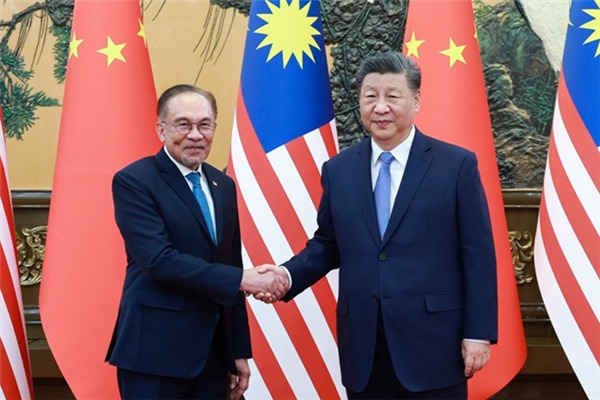Demand fueling potential for better products


Backed by its large consumer base, rapid economic growth and efficient industry chains, China has played an outsized role in not only consuming home appliances, from televisions and refrigerators to cooking devices and floor-mopping robots, but also producing and shipping them to other parts of the world.
Now, driven by both domestic and foreign market demands for greener and smarter products, as well as the stay-at-home economy and improved international telecommunication networks, global and Chinese business executives said the country is poised to introduce even more advanced products that consume less energy.
China enjoys a favorable environment in which it can promote green home appliance consumption, which will effectively enrich the growth of the industry in the coming years, said Alexander Dony, president of BSH Home Appliances Corp, a German consumer goods manufacturer.
He said that the strong supply-and-demand trends in the green home appliance market will embolden manufacturers to improve their ability to innovate and produce goods.
In response to national policies stimulating consumption, BSH brand Siemens Home Appliances launched a nationwide subsidized campaign last month. It offered home appliance upgrade consumption coupons that can be used together with vouchers issued by local governments. The move has significantly boosted the home appliance market and driven up the consumption of green and smart home appliances.
"The circular economy is the sure path to sustainability," said Dony, stressing this means not only creating ways for BSH products and materials to be refurbished or recycled multiple times but also for consumers to stop regarding used home appliances as throwaway items, resulting in significantly fewer finite resources or harmful carbon emissions.
In addition to last year's opening of its new China headquarters in Nanjing, Jiangsu province, BSH will put a new dryer factory into operation in Chuzhou, Anhui province, later this year.
Moreover, a second production line for BSH's dishwashers is also scheduled to start operations at the Chuzhou factory.
"The government's recent stimulus measures to boost spending on home appliances, vehicles, consumer electronic products and other major items is practical for stimulating consumers' purchasing appetites and facilitating consumption recovery," said Wang Yun, a researcher at the Academy of Macroeconomic Research at the National Development and Reform Commission.
China will carry out trade-in activities on home appliances to promote the consumption of green and smart home appliances, the Ministry of Commerce said in a circular jointly issued late last month by the ministry and 12 other government branches, including the NDRC and the Ministry of Finance.
Local governments, industrial associations, e-commerce platforms and home appliance manufacturers will be encouraged to play a role in comprehensively promoting the consumption of green and smart home appliances, the circular said.
The development of the home appliances recycling industry and mechanisms for residents to sell their old appliances were also encouraged, the circular said.
Yin Sheng, head of recycling appliance maker Midea Group in Foshan, Guangdong province, said the recycling of aging household appliances is conducive to promoting industrial upgrading and accelerating research and development of new products and technological advancement.
Besides seeking national and international green product certifications for all product categories, Midea has announced a green strategy by building a global environmentally friendly supply chain and developing energy-saving products and services to help the country peak carbon emissions before 2030 and carbon neutrality before 2060.
More than just helping large industry players boost sales in both home and overseas markets in the coming years, the government's intensified efforts to improve the consumption of next-generation home appliances will empower small and medium-sized companies to speed up their digital transformations and enter more markets to make themselves more competitive in other areas, said Liu Xiangdong, a researcher at the China Center for International Economic Exchanges.
"The government's policies will also help them gain financial support from banks to fuel innovation, as well as mitigate the impact caused by the COVID-19 epidemic and rising labor costs," he added.
- Former Guangxi vice-chairman accused of bribery
- Bus accident on Shenyang's Shenhai Expressway injures 2
- Students from 13 overseas institutions to undergo stricter review
- China-Vietnam dialogue held in Chongqing on boosting business, trade ties
- China, Africa experts discuss advancing modernization cooperation
- Former vice-president of China Construction Bank under investigation




































